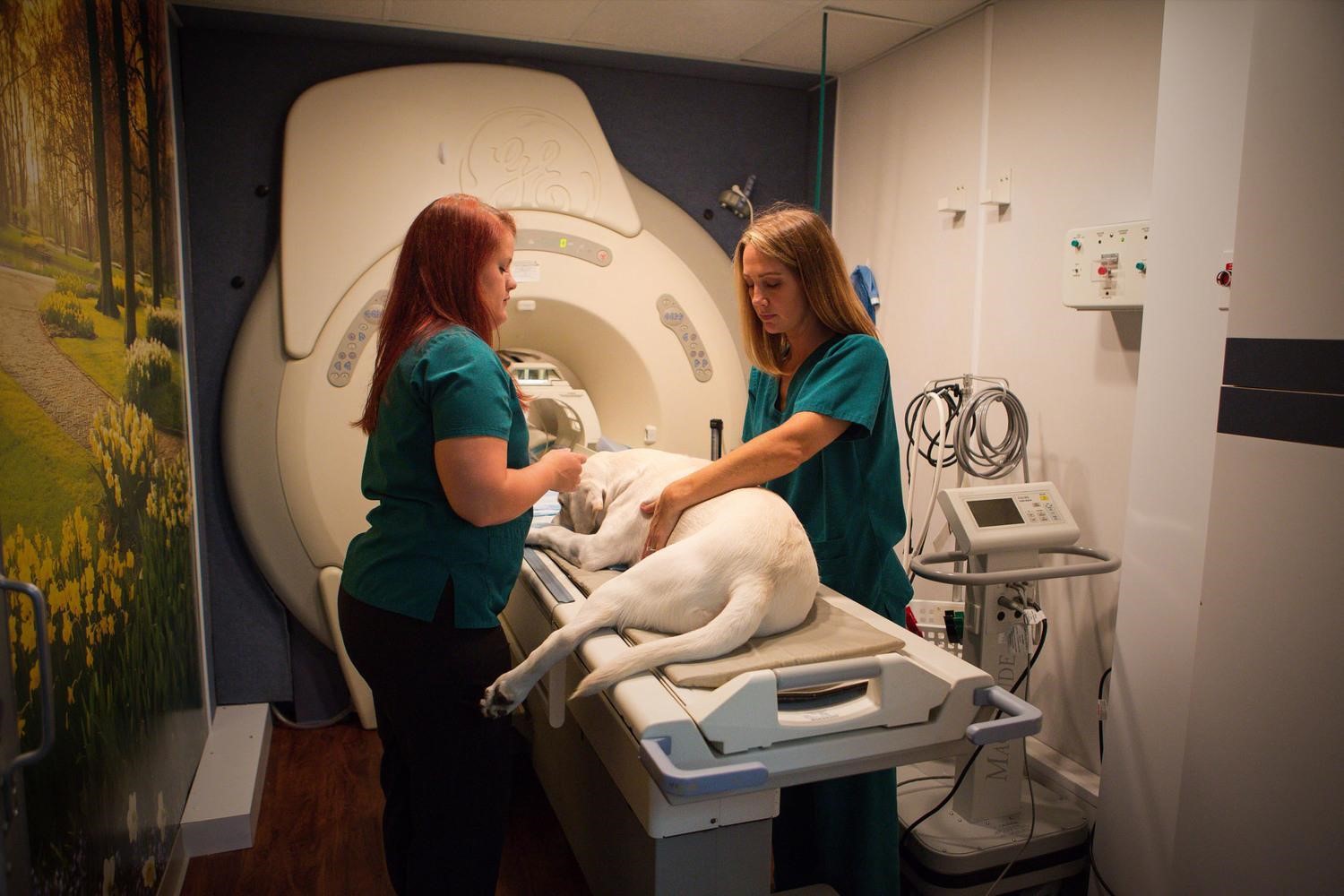A Closer Look at the Effectiveness of MRI in Veterinary Medicine

One thing that disturbs the pet owners the most is the bad health of their furry friends. Like humans, animals also remain prone to health issues. When they remain undetected, health problems decrease their lifespan. However, conducting regular checkups or visiting a veterinary expert in case of any health issues, symptoms, or signs helps to take the right precautionary action at the right time.
Regular veterinary MRI scans contribute to early detection, allowing for timely interventions that can significantly improve the overall health and well-being of our beloved pets. Beyond its diagnostic capabilities, veterinary MRI has opened new limits in understanding and treating various conditions in animals.
The high-resolution images provided by MRI allow veterinarians to pinpoint issues with exceptional precision. These machines play a vital role in the development of tailored treatment plans. Along with this, the non-invasive nature of MRI reduces stress for animals, which further helps to enhance their overall well-being during the diagnostic process. Moreover, the application of MRI in veterinary medicine extends beyond common household pets to exotic and large animals. Knowing more about these machines helps you calculate the effectiveness of these machines. Let’s have a closer look at the effectiveness of MRI in veterinary medicine.
Importance of MRI Veterinary
Veterinary MRI relies on the principles of magnetic fields and radiofrequency signals to generate detailed images of the internal structures of animals. Unlike X-rays, which provide a more generalized view, MRI offers a three-dimensional look at soft tissues, organs, and bones. This allows veterinarians to visualize abnormalities, such as tumors, joint issues, and neurological disorders, with remarkable clarity.
A Window into Soft Tissues
Per the reports, the molecular and functional data from PET and the soft-tissue contrast from MR can be combined in PET/MR, a hybrid imaging technique. While X-rays are excellent for capturing images of bones and certain organs, they fall short when it comes to detailed views of soft tissues. On the other hand, Veterinary MRI excels in providing a comprehensive look at soft tissues like muscles, ligaments, and organs. This capability is instrumental in detecting abnormalities such as tumors, inflammation, or structural issues that may not be visible through other imaging methods.
Orthopedic Applications
In the area of orthopedics, veterinary MRI plays a vital role in diagnosing musculoskeletal issues. Whether it is assessing joint health, detecting fractures, or evaluating soft tissue injuries, MRI provides a comprehensive view that aids veterinarians in making precise diagnoses. This mainly benefits performance animals, such as race horses or agility dogs, where musculoskeletal health is paramount.
Non-Invasive Nature
Veterinary MRI in Maryland is also known for its non-invasive nature. Traditional diagnostic methods often require invasive procedures, which could be stressful for animals and their owners. MRI eliminates the need for exploratory surgeries or other invasive techniques, providing a safer and more comfortable option for pets. This non-invasive precision is particularly crucial when dealing with delicate or hard-to-reach areas within the body.
Neurological Insights
Neurological disorders in animals can be challenging to diagnose accurately. Veterinary MRI has proven to be a game-changer in this regard. They offer unparalleled insights into the brain and spinal cord. From identifying tumors to assessing the extent of injuries, they allow veterinarians to diagnose as well as plan treatments for neurological conditions with a level of detail that was once unimaginable.
Real-Time Monitoring
Beyond diagnostics, veterinary MRI allows for real-time monitoring of certain conditions. From tracking the progression of joint diseases and assessing the effectiveness of treatments to making informed decisions about ongoing care, it can be used for various things. This capability facilitates a more dynamic and personalized approach to veterinary medicine.
Cancer Detection
Cancer is a dreaded diagnosis for pet owners, and early detection is often critical for successful treatment. Veterinary MRI enhances the ability to identify tumors, determine their size and location, and evaluate their impact on surrounding tissues.
Conclusion
MRI’s effectiveness in veterinary medicine proves the continual evolution of animal healthcare. From non-invasive precision to detailed insights into soft tissues, neurological conditions, orthopedic issues, and cancer detection, veterinary MRI has revolutionized the diagnostic landscape for our furry friends. The closer look provided by veterinary MRI not only aids in accurate diagnoses but also ensures that our furry friends receive the best possible care in their journey toward health and happiness.








